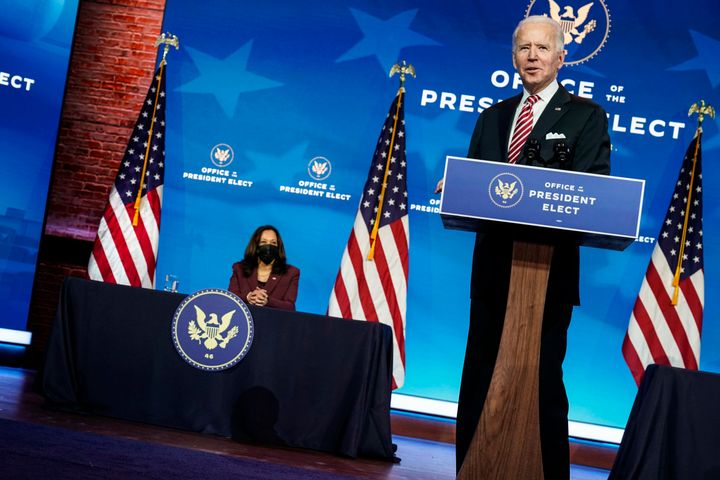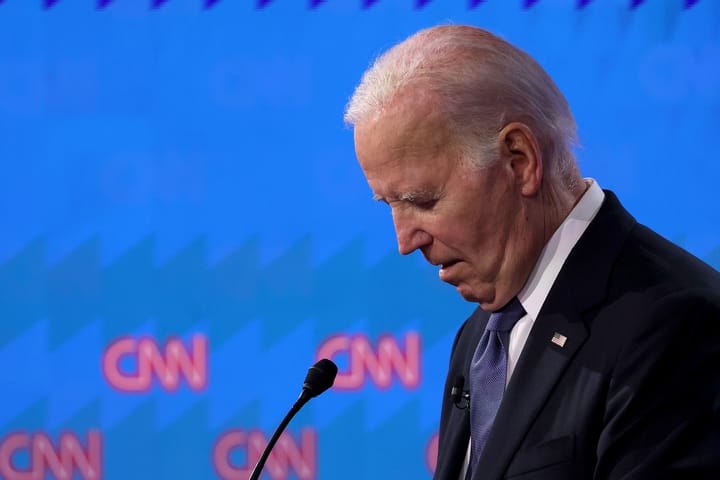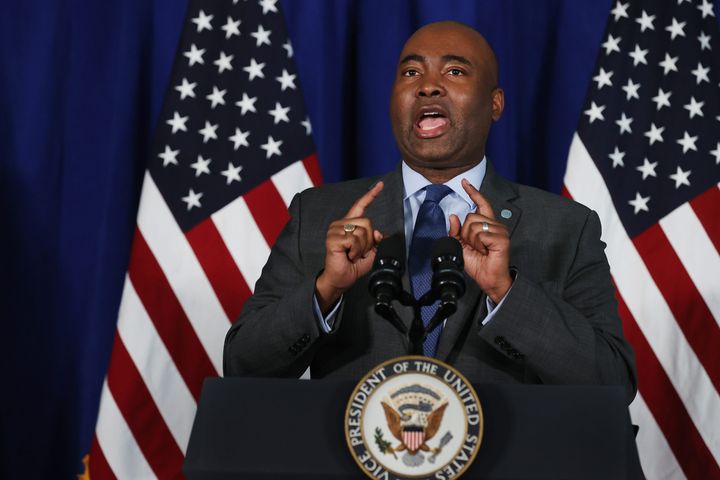The 447 voting members of the Democratic National Committee (DNC) are tasked with electing a new party chair this month, a process that usually happens in a winter meeting held around the presidential inauguration. This year, though, there have been just a few outstanding issues: the members didn’t know how the election would be run amid the pandemic, when it would be held, or when they would find out.
Also, the DNC members who were elected by their state parties to the national committee, rather than being appointed by the chair, had not yet heard who is running for leadership, including DNC treasurer, finance chair, secretary, and vice chair of voter participation and civic engagement. Traditionally, an incoming Democratic president makes clear their preferred candidates for all of the positions and those candidates cruise to election among DNC members, whose names and party positions are not publicly disclosed by the DNC.
This evening, the DNC secretary’s office sent national DNC members an email with links to the two memos below, outlining the procedure for this month’s chair election as approved by the Rules and Bylaws Committee. Nine top party positions are up for election, including the above-mentioned five officer roles, three vice chairs, and one vice chair and president of the Association of State Democratic Committees (ASDC). Sludge obtained the memos from a current DNC member.
DNC officer candidates must declare their candidacy by 9 pm ET on Thursday, Jan. 14, and it’s likely that the preferred party chair of the Biden-Harris political staff, replacing current Chair Tom Perez, will be indicated to DNC members by that time. By 9 am ET on Monday, Jan. 18, candidates must file a nominating petition with signatures of 40 DNC members. Digital ballots will be distributed by the secretary’s office on Jan. 18 and voting runs until 12 pm on Thursday, Jan. 21, with the winner requiring a majority vote. The rules require gender equality among the vice chairs.
Today’s memos leave unaddressed several questions about the election, and the DNC secretary’s office and party spokesperson did not respond to an email inquiry on the below as of publication of this post. One question is how the nominating signatures are to be gathered, given social distancing in the Covid-19 pandemic and public health orders—what kind of digital signatures count towards the 40 required. The rules make no mention of gathering “wet” signatures in person, or how digital signatures should be appended by Monday morning. Another question is what happens if multiple candidates run for a position and none reach an outright majority on the first ballot, as happened in the 2017 race for DNC chair between Tom Perez and progressive challenger Keith Ellison. The memo says nothing about how the second ballot is conducted.
For a group of reformist DNC members—those who signed a November letter to the Biden-Harris campaign requesting meetings on changes to empower state party grassroots and increase DNC transparency—there remains another outstanding question: will candidates to be the next DNC chair address their requests before members cast their votes in next week’s election? The reformers tell me they still have not received any acknowledgement or response to their letter from President-elect Biden’s staff.
The leading candidate for Biden’s nominee for DNC chair is widely believed to be the current associate chair Jaime Harrison, most recently a U.S. Senate candidate in South Carolina and previously state party chair there. Journalist David Dayen mentioned Harrison as the prohibitive favorite to win the election with Biden’s nod, and that Harrison is believed to be receptive to investing greater resources in state party organizing. Others on Twitter have hoped that Stacey Abrams, founder of Fair Fight voting rights group and former Georgia gubernatorial candidate, would throw her hat in the ring. Virtually no other prominent party leaders’ names have been floated for the powerful position of chair, which has control over the DNC budget, totaling nearly $442 million in spending in the 2020 cycle according to the Center for Responsive Politics.
David Atkins, an elected DNC member from California, tweeted to Biden’s campaign manager Jen O’Malley Dillon, who was tapped to be deputy chief of staff in the White House, to express concern about the fact that DNC members had not been informed about the rapidly approaching election, including information on who was running. The sentiment was echoed by John Verdejo, an elected DNC member from North Carolina, and Jeri Shepherd, an elected member from Colorado, but has not received a response on Twitter as of this writing from any DNC staff person.
Among the reforms sought by 37 DNC members in their November public letter were measures designed to reduce the influence of unelected “at-large” members, increase diversity on top party committees, open up the party budget to review the efficacy of its spending, and continue changes adopted last year toward a fairer presidential nominating process.
From 2008 to November 2016, Harrison was a principal at the Podesta Group, where his corporate lobbying clients included Lockheed Martin, Wells Fargo, BP America, Merck, Bank of America, and others. One of his clients, American Coalition for Clean Coal Electricity, represented major American coal companies like Murray Energy and Peabody Energy, and while Harrison was lobbying for the group it was fighting against President Obama’s Clean Power plan and other climate-related regulations. Over the summer, delegates to the virtual Democratic National Convention voted down a reform proposal to bar corporate lobbyists from serving on the DNC, among other ethics measures.
Originally posted at The Brick House Cooperative



